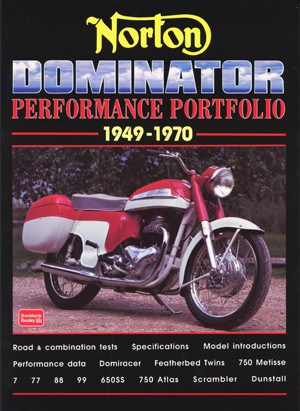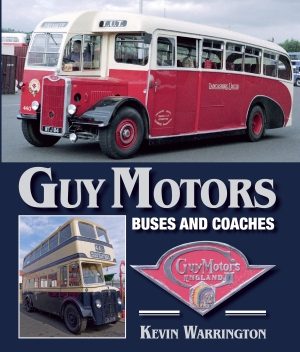Description
Although it may not have been obvious at the time, the 1937 announcement of Triumph’s Speed Twin, the first of its commercially successful parallel twin designs, changed the face of British motorcycling for ever. After the end of the Second World War, it was plain that all the major UK manufacturers would need parallel twins of their own, if they were to compete with Triumph, and most of them rushed their own variations on the theme into production. Norton Motors was no exception. Their own new twin, swiftly dubbed the Dominator, appeared in 1948 as a 500cc engine mounted in what was then the company’s standard heavyweight bicycle; sharing major cycle parts with several other models in their range. The new bike was well received, if not particularly impressive in any single feature. That changed with the introduction of the Featherbed frame for 1952; combining a sturdy enough twin cylinder engine with what was arguably the best handling frame in the world which at the time produced a motorcycle that was truly outstanding. The featherbed Dominators all looked good, sounded good, ran well and steered with a precision lacking from many other marques for many years. Capacity increases followed, taking the original Dominator 88 engine out to 600cc to produce the Dominator 99, then out by a further squeeze to produce the 650cc twin which was so essential for both UK and export markets in those days. For many classic riders, Norton’s 650SS defines the sporting 650 twin at least as well as its great competitor, the Triumph Bonneville. A further stretch of the engine’s capacity produced the 750cc Atlas engine, a fine and well-developed powerplant, which was used in several exciting machines bearing AJS and Matchless badges as well as the Norton original. By this stage the writing was writ large on the wall for the parent company, Associated Motorcycles Ltd, and the group was taken over in 1966 – the day of the Dominator was almost over. Production of Norton’s world-famous Dominator continued while its successor, the Commando, was developed, and the final Dominator, the 650cc Mercury, rolled down the line in 1970, almost exactly 20 years after Geoff Duke first rode the Featherbed framed racer at Blandford in 1950. All was not lost; the Dominator was followed by the Commando, which established itself in a class of its own for many more years. In the world of today’s classic rider the Dominator remains as popular as ever, providing a top-notch riding experience, and is highly regarded for its fine pedigree and fine steering. This book contains 42 articles on road tests, model intros & performance data. Models covered: Domiracer, Featherbed Twins, 750 Metisse, 7, 77, 88, 99, 650SS, 750 Atlas, Scrambler & Dunstall.
With a total of 136 fully illustrated pages. SB.









